Is a blood sugar of 6.9 life threatening?
A blood sugar level like fasting glucose of 6.9 doesn't come close to being life threatening.
Is fasting blood sugar 6.9 over the limit? Of course is over the standard, if the fasting blood sugar level exceeds 6.1mmol / L belongs to the blood sugar over the standard, and fasting blood sugar reached 6.9, is not a very high level, and even more than 7.0 diagnosis of diabetes are not counted, for this kind of situation, we usually call "impaired fasting glucose", is the blood sugar For such a case, we usually call it "impaired fasting blood sugar", which is a blood sugar abnormality, a kind of blood sugar situation of prediabetes.
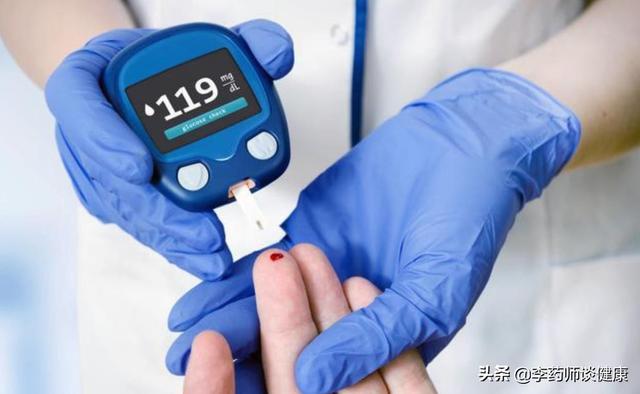
A blood glucose value that is not even considered diabetes, if it scares me to death, thinking that it may threaten my life and health, it is too much, and it is really not necessary. For the body's health problems, certain health check indicators, we have two extremes to avoid, one extreme is, regardless of the check value is high or low, as long as the body does not feel it does not care about it, so that the result is that some chronic disease problems, such as diabetes, hypertension, high blood cholesterol, etc., long-term regardless of the time, and so on, when the symptoms appear, there are problems, often are heart attacks, strokes and other major problems, this time then go to the pipe, and so on. Although it is not to say no, but after all, it is still too late; the other extreme is that the body's inspection indicators appear a little abnormal, scared of their own, afraid of a little fluctuation in the indicators, a little over the standard will lead to their own life expectancy cut short, not realizing that many times, nervousness and anxiety for the body's health caused by the adverse effects of the health of the body to be much greater than an indicator of a mildly exceeded the health hazards caused by the health of the body.
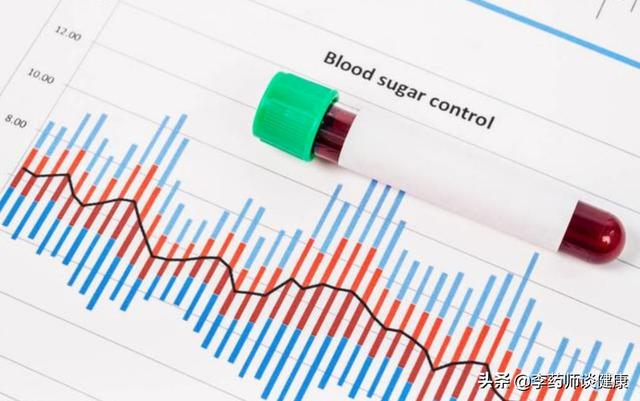
So what should be the correct attitude when I find that a certain body checkup indicator has exceeded the standard? First of all, don't be afraid, the body has this and that kind of index abnormality, are possible, for example, fasting blood sugar 6.9 problem, 6.9 exceeds the standard, don't need to worry too much, the first thing we need to do is not to worry about the fear, but we should be for the exceeding of this value of the adequate risk assessment, fasting blood sugar 6.9, if only from the point of view of the value of this blood glucose, the health hazards and health risks brought about by the actually Not big, as for lead to life-threatening, is more impossible, but we assess the risk, can not just look at this value, if you blood sugar 6.9, at the same time, blood pressure, blood lipids are also serious over the standard, after a comprehensive assessment, you may belong to the cardiovascular disease of the high-risk, therefore, we see the problem of elevated blood glucose, first of all, we need to synthesize the physical condition, to assess the value of this value to bring the health risk, combined with the health risk, to reasonably control and improve the health risk, and to improve the health risk, and to improve the health risk. Therefore, when we see the problem of elevated blood glucose, the first thing we should do is to evaluate the health risks associated with this value in the context of our physical condition.
Putting aside other factors, blood sugar to 6.9, it is recommended that you also go to do a glucose tolerance test, to see whether the body in the postprandial blood glucose is also elevated problems, if the fasting blood glucose 6.9, and glucose tolerance test in the 2-hour measurement of blood glucose more than 11.1, can still be diagnosed as a diabetic problem. But whether or not it is a diabetic problem, the value of fasting blood sugar 6.9 is not a very high blood sugar value, to control, but also do not have to worry too much.

Fasting blood sugar 6.9, how to strengthen the control? If the postprandial blood sugar is also no problem, is not considered to be a diabetic friend, fasting blood sugar 6.9, even hypoglycemic drugs do not have to eat, for such a blood sugar level, do a good job on the life of the regulation and control, to strengthen the life of strict self-discipline, often can be effectively regulated to reduce. For elevated blood sugar life management, or to emphasize the two aspects we often say, dietary regulation and strengthen the exercise exercise.
Diet is to control the excessive intake of sugar and energy, to maintain the body's nutritional balance, strengthen and adhere to exercise, is to increase the body's consumption, improve the body's utilization of sugar and insulin resistance, a combination of the two can play an effective role in regulating the lowering of blood glucose, if you can adhere to the long term, usually for such a fasting blood glucose level, to return to the normal level of 6.1 or less, it is also completely possible! The
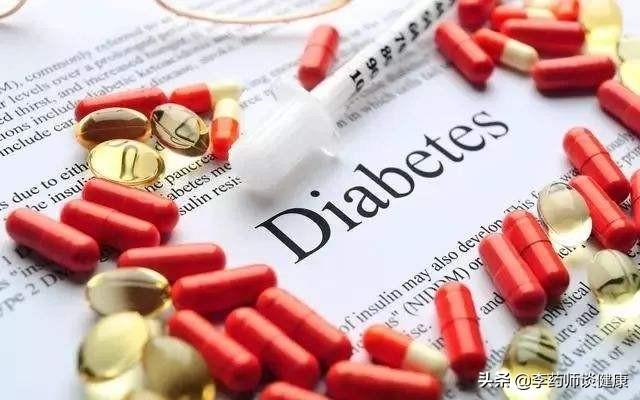
I would also like to say that, for such a blood glucose level, if through the reasonable life conditioning intervention, the blood glucose level control down, must continue to adhere to the original healthy lifestyle habits, and at the same time pay attention to do a good job of blood glucose regular checkups and measurements, if the blood glucose has been maintained well, it shows that a healthy lifestyle for you to bring long-term health benefits, if in the case of strict control of the life of the blood sugar If under strict control of life, the blood glucose further exceeds the standard, the condition of some typical symptoms of diabetes, then we should pay attention to the addition of medication to strengthen blood glucose control.
In short, fasting blood sugar 6.9, not how horrible value, correctly recognize their own blood sugar has exceeded the standard, can actively pay attention to, at the same time there is no need to fear the rise in blood glucose, not to mention the fear of life will be affected by high blood sugar, our life and health is always in the dynamic changes, only to face up to the health problems, and actively regulate and control the health problems, in order to better ensure our health and life expectancy.
Based on that one number alone, a blood sugar of 6.9 is not life threatening.
normal course
Simply 1 blood glucose is an instantaneous value and can only represent the blood glucose at the time of measurement, because this figure is a frequent blood glucose value for diabetics, and even for non-diabetics the blood glucose value of 6.9 is often reached after a meal.
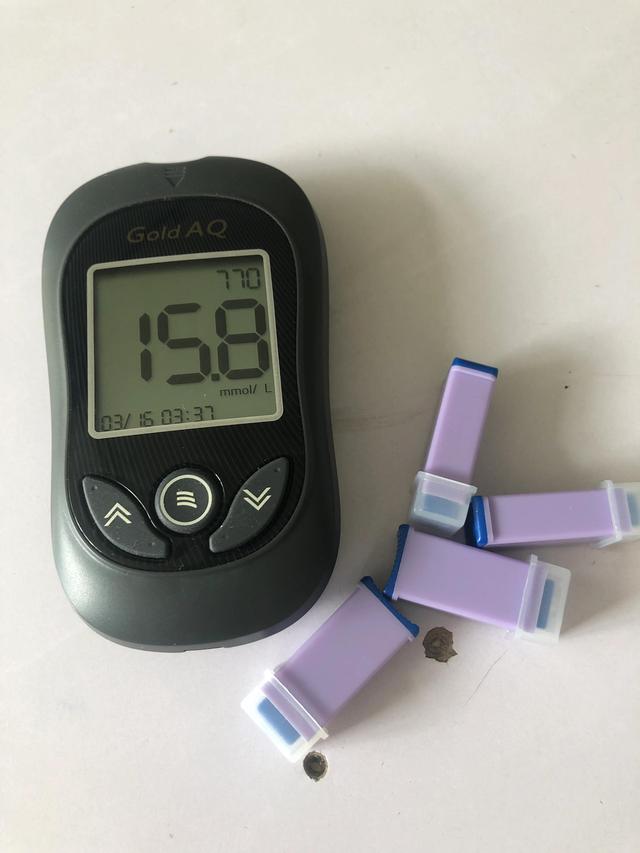
hazardous situation
This data may, for some patients, lead to a sharp rise in blood glucose in the next time period, leading to a life-threatening condition of diabetic ketoacidosis or hyperosmolar coma, or for others, a sharp drop in blood glucose and hypoglycemic coma, leading to death, may occur in the next time period.
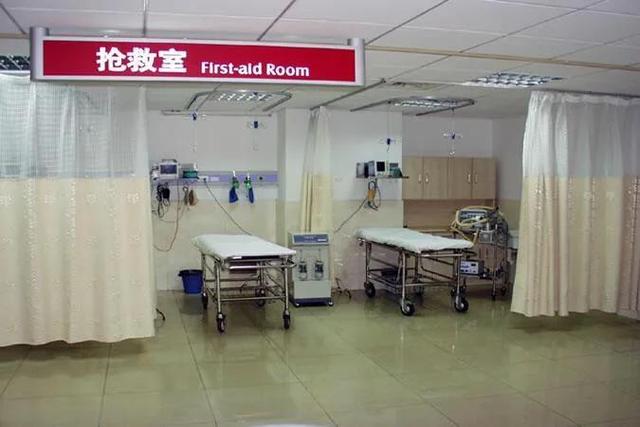
It suggests that 6.9 may be a process of deterioration, but it may also be a sign of gradual improvement in a serious condition.
This is because the human body is a multi-organ synergistic organism. It is not only blood sugar that determines a person's life, but also the functions of the heart, brain, kidneys, liver and lungs.
In patients with heart, brain and kidney failure, even if the blood glucose is at 6.9, the risk to life is still there.
For example, a person who dies suddenly could be a non-diabetic, measuring his blood sugar might be around 69, but maybe his life has already come to an end!

For diabetics, the risk of complications is significantly lower when blood glucose is kept below 7.0 as much as possible.
I'm Dr. Sun. Follow Dr. Sun on Sugar and keep learning more about health!
It is not life-threatening, but it depends on the type of diabetes. In the case of gestational diabetes, the blood glucose has to be lowered to 5.3 or less before three meals, and to 6.7 or less two hours after three meals, otherwise there is an increased risk of complications such as macrosomia, intrauterine fetal demise, and preterm labor.
Don't get any ideas, people. I've had it for about eight years now too. Type 2, doctor told to take meds all the time. Usually interested in diabetes knowledge. I know people around me who talk about it. This disease you seriously treat can fight to overcome it. It's so stressful to be up and down a little bit, isn't it? You should listen to your doctor and take your medication. We don't make the same mistakes as others. I know a person who usually takes medicine three times a day, and then change to eat once a rush to ten o'clock. So you can't just stop taking the medicine. There is also an acquaintance of ten o'clock eye blind to Shanghai to cure. Is this related to the six-point-nine? Is it so hard to fight to serve it and care for it? Life must be lived carefully. Life can't be casual. Understand it, fight it. Overcome it. 💪
Hello everyone! I'm Dr. Yang, a general practitioner who focuses on blood pressure, blood glucose, lipid, and uric acid management. Let me answer this netizen's question.
Let's start by telling you what a blood sugar level of 6.9mmol/L is
Blood glucose generally has a fasting blood glucose and a 2-hour postprandial blood glucose.
If it is fasting blood glucose 6.9 mmol/LIf you are at the stage of impaired fasting blood glucose (6.1~7.0mmol/L), there is a possibility of developing diabetes, and it is recommended to do a glucose tolerance test (OGTT test) to clarify whether you have diabetes or not.
- The glucose tolerance test is the gold standard for the diagnosis of diabetes by measuring blood glucose before and after giving the patient 75g of glucose to drink, and then looking at the change in blood glucose. The procedure is as follows:
- Step one:Wake up in the morning and go to the hospital to have fasting venous blood drawn and fasting blood sugar measured;
- Step two:Dissolve 82.5 grams of dextrose powder (75 grams of anhydrous dextrose) prescribed by your doctor in advance in 250-300 ml of warm boiled water and drink it within 5 minutes;
- Step Three:Starting from the first sip of sugar water, venous blood was drawn at half an hour, one hour, two hours, and three hours to measure four blood glucose values after drinking sugar water.
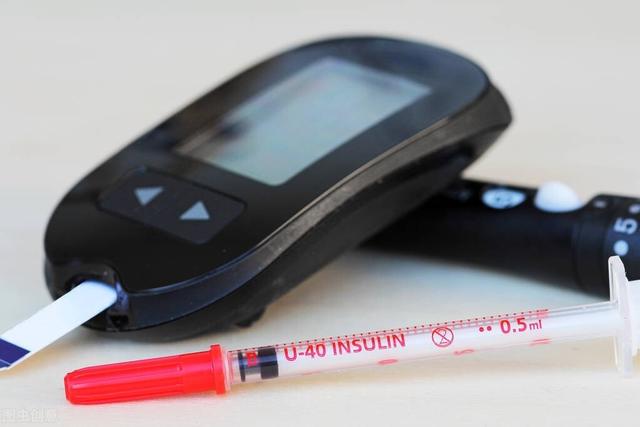
The glucose tolerance test allows us to see if insulin beta cell function is impaired, if there are abnormalities in blood glucose regulation and to predict the risk of developing diabetes.
If it is a 2-hour postprandial glucose of 6.9 mmol/LIf the blood glucose is within the normal range (<7.8 mmol/L 2 hours after a normal meal), then the blood glucose is within the normal range
In real life, healthy people and most of the diabetes measurement of blood glucose are fasting blood glucose, often ignoring the 2-hour postprandial blood glucose, which is easy to cause diabetes leakage, that is to say, the 2-hour postprandial blood glucose in fact should also be regularly monitored, especially in the high-risk group of diabetes.
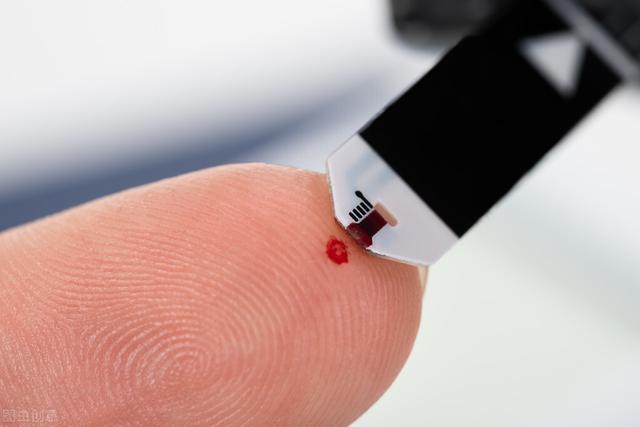
Let's assume for a moment that the ask is talking about a fasting blood sugar of 6.9mmol/L, so is it life threatening?
This blood sugar is not life threatening to talk about, but as mentioned earlier, it is in the impaired fasting blood sugar stage. If a glucose tolerance test is done even if diabetes is not diagnosed, it is pre-diabetic and it is possible to develop diabetes. So, it's time to take care of your blood sugar control and monitor it regularly.
By controlling blood sugar in the pre-diabetic stage, the likelihood of diabetes in the future will be greatly reduced, which in turn will reduce the risk of coronary heart disease, cerebral infarction and other cardiovascular diseases.
So how do you control it?There is no need to take hypoglycemic drugs at this stage of blood sugar, only dietary control, moderate exercise, weight control, smoking cessation, alcohol restriction and other healthy lifestyles are needed.Dietary control is mainly to limit the intake of staple foods, eat less fatty meat and other high-calorie foods, and appropriately increase the intake of fresh vegetables and fruits; moderate exercise means that it is recommended to have at least 30 minutes of moderate-intensity exercise every day, such as brisk walking, jogging, playing tai chi, and square dancing, etc.; and weight control requires that everyone's body mass index be controlled between 18.5 and 23.9 kg/m².There is also the need to monitor your blood sugar, at least 2 times a year for fasting blood sugar.
Therefore, fasting blood glucose 6.9 mmol / L do not have to worry too much, but to pay attention, which can play a role in preventing preventive diseases.

Well, today will say so much, if you think that speak can also point a praise chanting ~ there are questions you can pay attention to me to get more related to health knowledge, thank you for reading!
Blood sugar 6.9mmol/L is not life threatening. First of all, for normal people, if it is postprandial blood sugar, then 6.9 is very normal; if it is random or fasting blood sugar, 6.9 is not very high, if there is no symptom of "three more and one less", it can not be said to be diabetes. If a pregnant woman's blood sugar is 6.9, it is best to go to the hospital to see, it may be gestational diabetes, but it is not life-threatening.
In the case of a diabetic, a blood sugar of 6.9 should be considered well controlled, not to mention life threatening.
So what blood sugar level is life threatening?
1. Hypoglycemia. Normal adult blood glucose is less than 2.8mmol/L, diabetic patients blood glucose is less than 3.9mmol/L, then there will be hypoglycemic coma, you need to replenish glucose in a timely manner, otherwise the coma time is too long will be life-threatening.
2. Hyperglycemia. Diabetic hyperosmolar coma occurs when blood glucose is greater than 33.3mmol/L and requires immediate hospitalization. In my clinical work I have seen blood glucose 28.3mmol/L has been coma, so as long as the blood glucose is greater than 20mmol / L should be timely intervention.
Is blood sugar 6.9mmol/L fasting or postprandial? Postprandial blood glucose 6.9mmol/L that doesn't mean much. Fasting blood glucose of 6.9mmol/L is already beyond the normal reference limit of 6.1mmol/L, then it is recommended to further examination, screening glucose tolerance test and glycated hemoglobin, to clarify whether there is diabetes or not, and whether it is in the pre-diabetic stage.
Thanks for the invitation! A blood sugar of 6.9 alone is not life threatening, but if you are in a state like this for a long period of time, it may induce some chronic diseases that can cause an abnormal state of life.
In fact, we must understand one thing, blood sugar 6.9 it is just a state now, more should go to clarify whether it is a long-term abnormal state or some abnormal state.
If the fasting blood glucose is 6.9, the majority of people do not have any special circumstances, and can achieve a good effect by actively controlling it with diet. For the time being, there is no need to apply special drugs or other treatments.
Then for the two-hour postprandial blood glucose is 6.9, then this is not a very abnormal state, and do not need to go to special worry.
So blood sugar 6.9 do not have to worry about special, but must be clear about their own relevant state, so that is more important, otherwise there are many people in the late stage of the occurrence of some other abnormalities of diabetes complications and cause the patient's adverse reactions.
Blessings to all of you for good health!
If you have any questions you can private message me, not able to read on this, but can give you a relatively correct advice. Feel free to like, comment, retweet, and follow me to bring you to the real world of neurosurgery (brain surgery).
[Professional doctor to answer your questions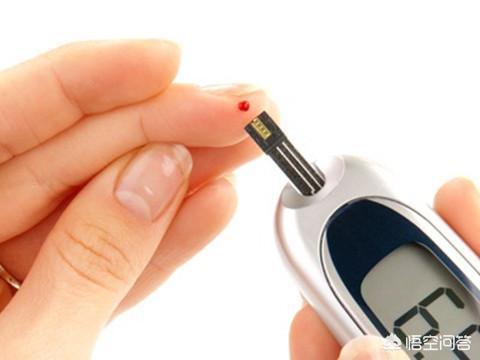
First of all, let's take a look at this set of data: diabetes uncontrolled for 3-5 years will have a variety of complications, complications can be involved in all tissues and organs of the body; early complications can be reversed by active treatment of most of them, otherwise they will continue to progress into irreversible lesions triggering serious consequences, such as coronary heart disease, myocardial infarction, cerebral infarction, uremia, blindness, etc.; serious lesions seriously affect the quality of life, but also may be at any time, such as sudden death! Accidents may also occur at any time, greatly reducing the life expectancy that should have been.
Of course, this process is gradual, and may take years, decades or decades. In the early stage of hyperglycemia and diabetes, there are no obvious symptoms, but the damage to the body, especially to the blood vessels, occurs unconsciously, and only by controlling hyperglycemia at an early stage can we avoid the occurrence of serious consequences, so it is said that the persistent presence of hyperglycemia will eventually bring about irreparable impact on the life. Do not take it lightly just because your blood sugar is not very high.
With this knowledge come back to the issue of blood glucose 6.9 mmol/L. If this blood glucose is a fasting blood glucose, it is clearly above the upper limit of normal values, and although the impact on life will not be immediately apparent, it should be taken seriously and at least two things need to be done:

First, immediately go to the hospital for glucose tolerance test, clear what level of blood glucose is at present to make a clear diagnosis, to know the blood glucose normal or not to judge is divided into several situations:
- Normal blood glucose: fasting blood glucose 3.9-6.1 mmol/L and 2-hour postprandial blood glucose 4.4-7.8 mmol/L, noting that both must be met at the same time.
- Prediabetes: fasting blood glucose 6.1-7.0 mmol/L and/or 2-hour postprandial blood glucose 7.8-11.1 mmol/L, noting that the diagnosis can be made by reaching either of the two standards.
- Diabetes mellitus: fasting blood glucose greater than 7.0 mmol/L and/or 2-hour postprandial blood glucose greater than 11.1 mmol/L. Note that the two are or are not related, and that diabetes mellitus can be diagnosed when either is exceeded.
What you need to know is: if you are in the pre-diabetes and no intervention control, most people will progress to diabetes within 1-3 years; and diabetes is a lifelong disease that requires lifelong treatment, and diabetes is a progressive disease, with the growth of years of illness will continue to progress and aggravate, so early diagnosis, early treatment and adherence to the treatment is very critical.
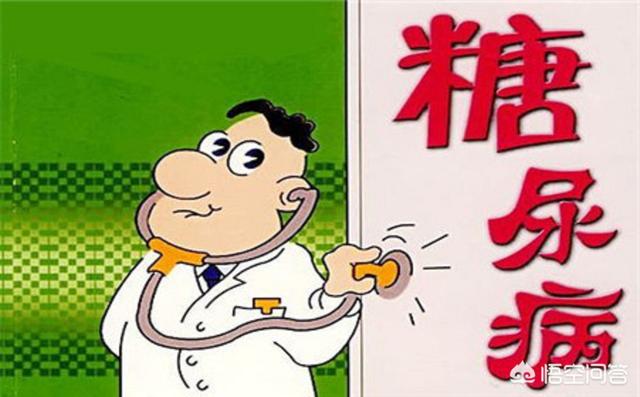
Second, according to the situation to do the relevant examination, the elevation of blood glucose belongs to the metabolic disorder, disorder of a disease, in its elevation at the same time, blood fat, blood pressure and so on may occur abnormally, need to do the examination at the same time. More importantly, hyperglycemia does not occur suddenly, and many people have actually been at high blood glucose levels for a long time before discovery, and some early complications may have already occurred, and thus should be examined, for example, to see if there is any protein in the urine test, to see if there is any microvascular lesion in the fundus of the eye, and to see if there is any large or medium-sized vascular disease in the carotid artery ultrasound, and so on.
In short, the high blood glucose can not be careless, more can not feel and ignore, do not wait for the blood glucose is higher only to do intervention, the earlier the blood glucose control standards in the future, the greater the benefit. Practice has shown that diabetes can be treated with positive interventions and can enjoy the same life expectancy as normal people.
I hope this answer can help you, welcome to click on the attention and leave a message, together to learn and exchange more health knowledge.
Is a blood sugar of 6.9 life threatening?
In general, the normal blood glucose range is: fasting whole blood glucose:3.9-6.1 mmol/L, 1 hour after a meal:6.7-9.4 mmol/L, 2 hours after a meal:≤7.8 mmol/L.
As you can see, a blood glucose of 6.9, whether fasting or postprandial, is not a very high value and is certainly not life-threatening. However, it should be noted that if it is a fasting blood glucose, then this blood glucose value is indeed beyond the normal blood glucose range, which belongs to the blood glucose abnormality, and needs to be alerted.
If you find that your blood sugar is abnormal, you must pay attention to monitor your blood sugar changes more often before and after meals. If you next find that such an abnormality still exists, and there are early symptoms of diabetes such as body weakness, increased nocturia, poor vision, dry throat and tongue, you must pay attention to it and go to the hospital in time for diagnosis.
If you are diagnosed with diabetes, you need to take medication regularly under the guidance of your doctor, and pay attention to controlling the intake of sugar and salt, eat as light as possible, eat regular meals, exercise more often, and avoid smoking and drinking.
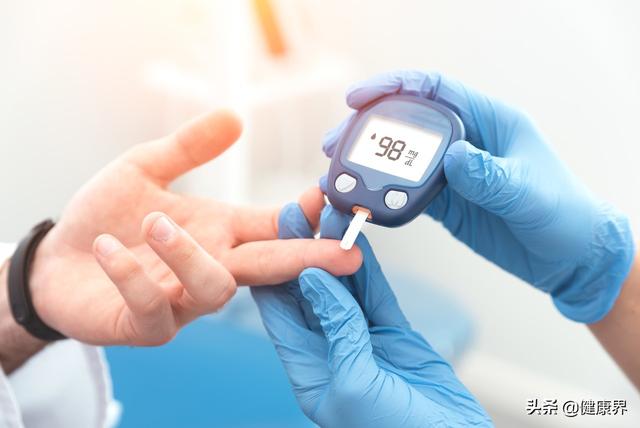
The Health Interface provides healthcare hotspots, policies, perceptions, opinions and interesting popular science content to 13 million healthcare practitioners and the broader health community every day, and looks forward to your every share and interaction.
This question and answer are from the site users, does not represent the position of the site, such as infringement, please contact the administrator to delete.